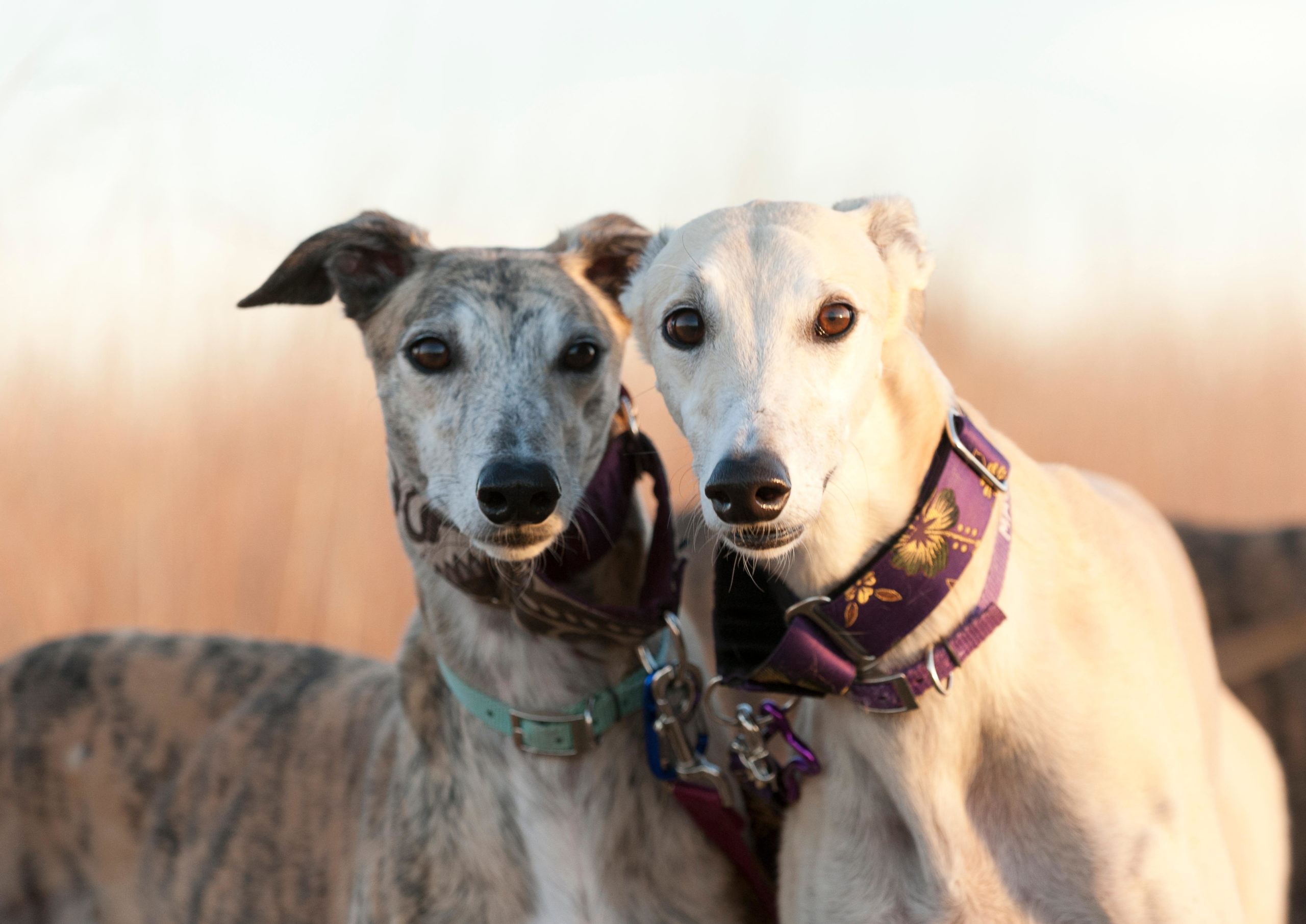Healthy Hounds: The Most ‘Common’ Greyhound Health Concerns
Nov 11, 2022
When I first became a greyhound dad, I spent most of my days fretting about my hound’s health. Every single hop, sniffle, or slightly weird blink had me calling the vet for advice. But I needn't have worried as much as I did - hounds are pretty hardy!

Modern purebred dogs are often victims of several health ailments, many of which have been bred to accentuate certain features that are ‘desirable’ in show dogs. For example, German Shepherds often suffer hip issues because of their slanted backs, and Pugs often suffer sinus issues due to their squat noses. Greyhounds, however, have been bred to be prime athletes - strong, healthy, and fit - and this means they have fewer health issues than many other breeds!
There are a few things to look out for that are comparatively ‘common’ in greyhounds. I use the word common loosely - it's all relative, and many issues can be avoided with good care and proactivity. However please note, I am not a vet, and your vet should always be the first point of call for health concerns!
Teeth
Some studies have shown that up to 40% of greyhounds suffer from dental problems, which is a lot more than any other dog breed. When you adopt a GAP greyhound, they have just had a full scale and polish clean done - and GAP recommends getting one of these done about once a year. Some dogs (my Rhythm, for example) need it slightly more often. Keeping on top of dental care with regular cleans, as well as nice crunchy food and home brushing, is imperative in avoiding extractions as your hound ages. The biggest sign of dog teeth needing a professional clean is bad breath - but also look out for loss of appetite and blood in the mouth, which are more urgent symptoms.
Pannus
Pannus, also known as chronic superficial keratitis, is a condition that affects the cornea (the clear part) of the eye. It is most common in large breed dogs, and sadly greyhounds are no exception. My oldest hound, Rhythm, was diagnosed at age seven. Symptoms of pannus include changes in colour to the eye(s), white fatty growths in the eye, visual impairment, and excess eye gunk. Unless pannus is advanced, it is usually painless for your dog - and therefore it is so important to get on top of it early. It can be treated with topical eye drops including steroids and anti-inflammatories, which you can get from your vet easily. My Rhythm is completely fine - one eye is cloudy now, four years on from diagnosis, but she has no issues with her drops and feels no discomfort at all!
Osteosarcoma
Of all greyhound ailments, osteosarcoma is the one that scares me the most - but it is not at all a given, and there isn't any point losing sleep over it. Osteosarcoma is an aggressive bone cancer, which generally starts in the leg, and is very hard to fight. Sadly, new studies are showing that greyhounds are slightly more likely to get rare cancer than other breeds. Osteo almost always starts as a limp - and that's why it is always important to get a sore leg checked out right away! It could be something simple such as a corn or a sprained muscle, but it's better to be safe than sorry. Osteo calls for radical treatment such as amputation and chemotherapy if it is still treatable when it is caught.
Bloat
This is one of the scariest of the things I warn new hound owners about, as the condition is fatal when not treated quickly. Bloat is a condition that affects deep-chested breeds (such as greyhounds) - it occurs when the dog's stomach flips and twists on itself. Some key signs are a swollen, hard belly, retching without being able to vomit, restlessness and panting, and drooling. Bloat is a medical emergency, and if you suspect your hound may have it, you should be getting to the closest open vet without hesitation. Some tips to avoid bloat include feeding from raised bowls, which limits gulping, and not exercising your hound directly before or after a meal. I know in my family, we keep an eye on our hounds after dinner as they tend to try and get the happy zoomies, which is not a great idea on a full stomach.
This article might feel daunting, but I promise you, it’s not. I have worked with dozens of breeds in my time, and greyhounds have been the healthiest across the board. They don't cost me the world in vet bills, and I very rarely must worry about their health. And remember when in doubt, talk to your vet.
Author: Charlie Jayde
Greyhound Owner for 4 years / GAP Volunteer
Experienced Dog Trainer


